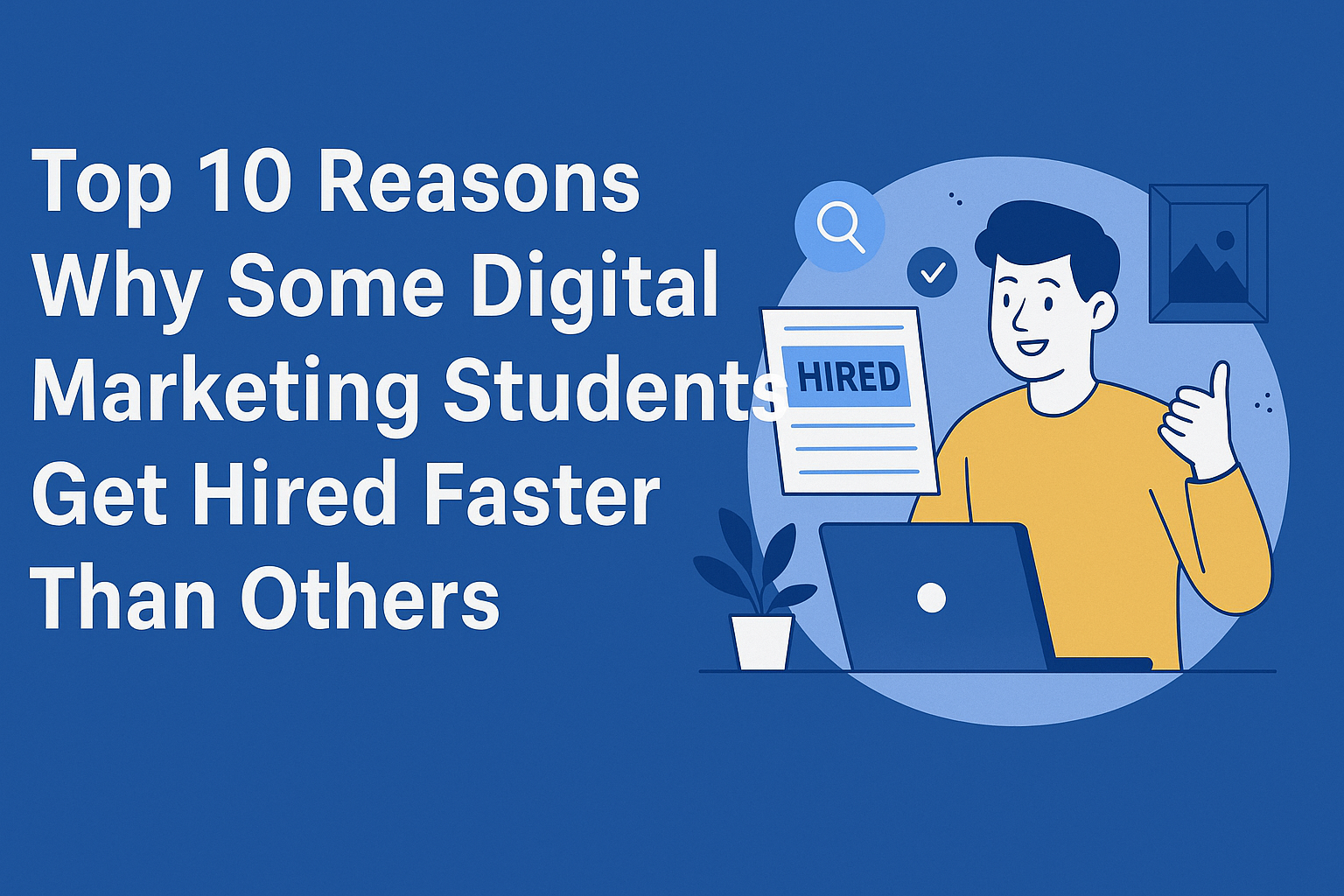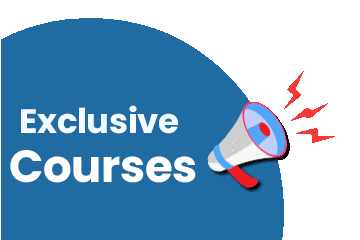
In digital marketing, some students are hired faster than others. Skills are often noticed more than just degrees. Job-ready candidates are selected over those needing more training. Practical knowledge is often valued above theoretical learning. Internships are preferred by recruiters over empty resumes. Soft skills are usually tested during interviews and group tasks.
Because of these reasons mentioned below by an institute of digital marketing course in Delhi, hiring speeds vary among students.
Practical work is often preferred over only classroom knowledge. Real-world tasks are usually completed during hands-on projects. Confidence is usually shown when such work is presented well.
Skills are often demonstrated better through real examples. Group projects are also considered useful by most companies. A clear understanding of tools is often expected. Results from projects are usually discussed during interviews.
Real outcomes are often seen in detailed case studies. Recruiters are usually impressed by strong project experience. Because of this, project-based learners are hired more quickly.
Digital marketing certifications are often noticed by hiring teams. Courses from trusted platforms are usually preferred by recruiters. Skills are often tested through these online certification programs.
Practical tasks are included and must be completed by students. Verified certificates are often added to resumes and profiles. Interview calls are often given based on these achievements.
Confidence is usually gained after passing tough online exams. Learning is made easy through structured online training courses. Recruiters are impressed when known platforms are listed clearly. Because of this, certified students are hired faster than others.
Internship experience is often asked about by recruiters. Practical skills are usually learned during internship training programs. Tools are often used to complete daily marketing tasks. Real campaigns are handled and monitored by students.
Reports are prepared and submitted under team supervision. Tasks are explained clearly by managers during the internship. Time management is often practiced in real work settings.
Teamwork is experienced and developed during project collaboration. Growth is seen when students handle real business challenges. Because of this, internship holders are hired faster by companies.
Good communication is often noticed during job interviews. Clear answers are usually expected by hiring managers. Confidence is shown when ideas are shared smoothly. Body language is often observed by interviewers.
Emails are read to check writing clarity and tone. Listening skills are tested in team discussions and tasks. Presentations are often asked for in final rounds. Feedback is usually given based on communication style.
Poor speaking skills are often seen as a weak point. Because of this, strong communicators are hired faster than others. Better team performance is expected from good communicators in the workplace.
Personal branding is often checked by hiring managers online. LinkedIn profiles are usually viewed before interview calls are made. Social media posts are often reviewed by recruiters. A strong digital presence is often appreciated by companies.
Skills are usually highlighted through shared posts and content. Achievements are often noticed when shared regularly on platforms. Portfolios are often linked in bios for easy access.
Professional photos are expected on career-related profiles. Clear headlines are usually preferred by those scanning profiles. Because of this, well-branded students are often hired faster. A strong online image is seen as a big plus.
Updated portfolios are often checked by hiring managers first. Work samples are usually viewed before interview calls are made. Design, writing, or campaign work is often expected inside.
Recent projects are often included to show current skills. Tools used are clearly listed and often noticed. Results from tasks are usually explained in short notes. A clean layout is often preferred by recruiters.
Broken links are usually seen as a weak point. Portfolios are usually shared as links in resumes. Because of this, updated portfolios are often reviewed carefully. Candidates with strong portfolios are usually hired more quickly
Current trends are often discussed during job interviews. Latest updates are usually expected to be known well. Digital tools are often updated and must be learned. Social media changes are regularly followed by top students.
New features are often used in project work. Industry news is usually read daily by smart learners. Trending topics are often added to content planning. Strategy changes are often based on current market behavior.
Companies expect candidates to stay informed and updated. Because of this, trend-aware students are hired faster. Employers prefer those who understand what is working now.
Professional behavior is often observed from the very beginning. Emails are usually checked for clear and polite language. Resumes are expected to be clean and well-organized. Deadlines are often set and must be respected strictly.
Interview timings are expected to be followed without delay. Dress code is usually noticed during video or in-person interviews. Phones are expected to be silent during meetings. Respectful language is often used when speaking to recruiters.
Thank-you emails are usually appreciated after interviews are done. Because of this, professional behavior is often remembered by employers. Candidates showing such behavior are hired more quickly.
Follow-up emails are usually sent after job interviews end. A thank-you message is often expected within one day. Interest in the role is clearly shown through follow-ups. Good manners are often displayed in polite email replies.
Interview dates are usually mentioned to help HR remember clearly. Short and clear emails are often appreciated by recruiters. Grammar and tone are always checked before sending messages.
Delay in follow-ups is sometimes seen as a bad sign. Candidates are often remembered when follow-ups are done right. Because of this, follow-up emails are often valued by HR teams.
A learning attitude is often noticed during job interviews. Questions are usually asked to check curiosity and interest. New tools are expected to be learned when pursuing web design course when required. Feedback is often accepted with a positive mindset.
Mistakes are usually seen as learning chances by managers. Online courses are often taken to improve weak areas. Books and blogs are regularly read by top learners. Growth potential is always valued during the hiring process.
Motivation to improve is often praised by recruiters. Because of this, learning-minded students are hired faster. Companies prefer those who grow with changing industry needs.
